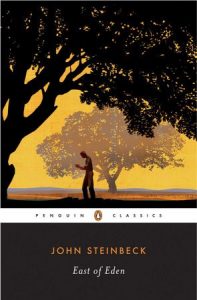Lydia, Y12, explores the way the “evil” women in literature have been presented and what links these women across the centuries.
 From Euripides’ Medea (431 BC) to Steinbeck’s East of Eden (1950), the presentation of women throughout literary history is fascinating, often providing a lens through which modern readers can appreciate the attitudes of the past. It is especially interesting to focus on the presentation of evil and transgressive women in literature, revealing the gender-based fears that have plagued western-society for almost two and a half millennia.
From Euripides’ Medea (431 BC) to Steinbeck’s East of Eden (1950), the presentation of women throughout literary history is fascinating, often providing a lens through which modern readers can appreciate the attitudes of the past. It is especially interesting to focus on the presentation of evil and transgressive women in literature, revealing the gender-based fears that have plagued western-society for almost two and a half millennia.
Focusing solely on Medea and East of Eden as well as Shakespeare’s Macbeth (1606), these evil women span an enormous timeframe yet adhere to strikingly similar tropes, almost invariably defying female-specific social mores. These include a rejection of motherhood and an assertion of dominance over their husbands.
Medea is a jilted bride, seeking revenge on her former husband, Jason, for leaving her for the far richer Princess Glauke. As the ultimate revenge she slaughters her own children with a knife. The childless Lady Macbeth speaks in graphic terms of her readiness to “dash the brains out” of a breastfeeding infant. Shakespeare also emphasises her physical aversion to motherhood as she implores spirits to “come to my woman’s breasts and take my milk for gall”. In East of Eden, Steinbeck’s villainess, Cathy Ames, echoes this motif. Steinbeck describes that “[Cathy’s] breasts didn’t grow … There was no quickening of milk glands, no preparation to feed the infant”. As soon as Cathy’s children are born she rejects them both. The repeated presentation of wicked women as child killers or negligent mothers across thousands of years reveals how deeply entrenched societal associations between child-rearing and womanhood are.
 These literary women also had in common their assertions of dominance over their husbands. Steinbeck claims that Cathy had “the most powerful impact upon Adam (her husband)” and Lady Macbeth was much the same, yielding a sinister amount of power over Macbeth. Medea emasculates Jason as she tells him his “complete lack of manliness” is “utterly vile”. This fear of female scorn is repeated in Macbeth as Lady Macbeth asserts “when you durst do it, then you are a man” in the face of her husbands hesitance to assassinate the king.
These literary women also had in common their assertions of dominance over their husbands. Steinbeck claims that Cathy had “the most powerful impact upon Adam (her husband)” and Lady Macbeth was much the same, yielding a sinister amount of power over Macbeth. Medea emasculates Jason as she tells him his “complete lack of manliness” is “utterly vile”. This fear of female scorn is repeated in Macbeth as Lady Macbeth asserts “when you durst do it, then you are a man” in the face of her husbands hesitance to assassinate the king.
I find these similarities particularly interesting to consider in relation to women in our society today. Even in 2018, 2449 years after Medea was first performed, women in parts of the world are stripped of the access to legal and safe abortions, forced into the role of motherhood against their will and no country on earth pays women and men an equal wage. Though it may be discouraging to think about these attitudes towards the role of women and how deep those attitudes run, I believe there is a positive angle to be considered. As society moves forward, however incrementally slow the pace may be, consider it a triumph in the face of a thousand years of prejudice.

